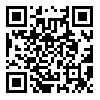目的 探讨赖氨酰氧化酶样蛋白2(LOXL2)在肿瘤免疫微环境中的意义,并筛选潜在的敏感药物。方法 采用TCGA和GTEx数据库分析LOXL2在33种癌症中的表达水平;采用TCGA数据库分析LOXL2的突变频率,以及LOXL2表达水平与肿瘤突变负荷(TMB)、微卫星不稳定(MSI)及癌症患者预后的关系;采用TIMER数据库分析LOXL2表达与免疫细胞浸润水平的相关性;采用临床生信之家分析LOXL2表达与免疫检查点基因表达的相关性;采用TISMO数据库分析LOXL2在免疫检查点阻断(ICB)疗法应答者和无应答者,以及对照者之间的表达水平;采用TIDE数据库评估LOXL2对免疫治疗反应的预测价值;采用GSCA数据库筛选LOXL2的敏感药物。结果 相较于正常组织(癌旁组织),LOXL2在20种癌症组织中表达升高,在5种癌症组织中表达降低(P<0.05)。LOXL2在多种癌症类型中存在不同程度、不同类型的基因突变。在8种癌症类型中LOXL2表达与TMB相关,在2种癌症类型中LOXL2表达与MSI相关(P<0.05)。在多种癌症类型中,LOXL2高表达与癌症患者预后不良相关(P<0.05)。LOXL2表达与免疫细胞浸润水平及免疫检查点基因表达相关(P<0.05)。LOXL2表达在10组ICB疗法应答者和对照者之间差异具有统计学意义,其中在7组应答者中LOXL2表达升高。在涉及LOXL2预测价值分析的21项研究中,有11项LOXL2的曲线下面积大于0.5。LOXL2表达与GDSC数据库前30位敏感药物中的12种药物IC50呈负相关关系。结论 LOXL2与肿瘤免疫微环境密切相关,对多种癌症药物具有敏感性,可作为潜在的治疗靶点。
广西医学 页码:77-90
作者机构:周宁静,在读本科生,研究方向为肿瘤免疫微环境及中医药干预。
基金信息:国家自然科学基金(82305073);天津市自然科学基金(22JCQNJC01290);天津市教委科研计划项目(2021KJ135)
- 中文简介
- 英文简介
- 参考文献
Objective To investigate the significance of lysyl oxidase like 2 (LOXL2) in tumor immune microenvironment, and to screen potential sensitive drugs. Methods The databases of TCGA and GTEx were used to analyze the expressions of LOXL2 in 33 categories of cancers. The TCGA database was used to analyze the mutation frequency of LOXL2, and the relation of LOXL2 expression with tumor mutation burden (TMB), microsatellite instability (MSI) and prognosis of cancer patients. The correlation between LOXL2 expression and immune cell infiltration level was analyzed by employing the TIMER database. The correlation between LOXL2 expression and expressions of immune checkpoint genes was analyzed by using the Assistant for Clinical Bioinformatics. The TISMO database was used to analyze LOXL2 expression between immune checkpoint blockade (ICB) therapy responders and non⁃responders, as well as control individuals. The TIDE database was used to evaluate the value of LOXL2 in predicting the response of immunotherapy. The GSCA database was used to screen sensitive drugs of LOXL2. Results Compared with normal tissues (paracancerous tissues), LOXL2 expression was elevated in 20 categories of cancer tissues, and decreased in 5 categories of cancer tissues (P<0.05). LOXL2 had different degrees and types of gene mutations in a variety of cancer categories. The expression of LOXL2 was correlated with TMB in 8 categories of cancers, and with MSI in 2 categories of cancers (P<0.05). High expression of LOXL2 was associated with poor prognosis of patients with cancer in multiple categories of cancers (P<0.05). The expression of LOXL2 was correlated with the level of immune cell infiltration and immune checkpoint genes expressions (P<0.05). LOXL2 expression was statistically significant different between responders in 10 groups of ICB therapy and control individuals, therein LOXL2 expression was elevated in 7 groups of responders. In 11 of the 21 studies involving the analysis of predictive value of LOXL2, the area under the curve of LOXL2 was greater than 0.5. The expression of LOXL2 negatively correlated with the IC50 of 12 categories of the top 30 sensitive drugs in the GDSC database. Conclusion LOXL2 is closely related to tumor immune microenvironment and is sensitive to multiple categories of cancer drugs, which can be used as a potential therapeutic target.
-
无




 注册
注册 忘记密码
忘记密码 忘记用户名
忘记用户名 专家账号密码找回
专家账号密码找回 下载
下载 收藏
收藏
